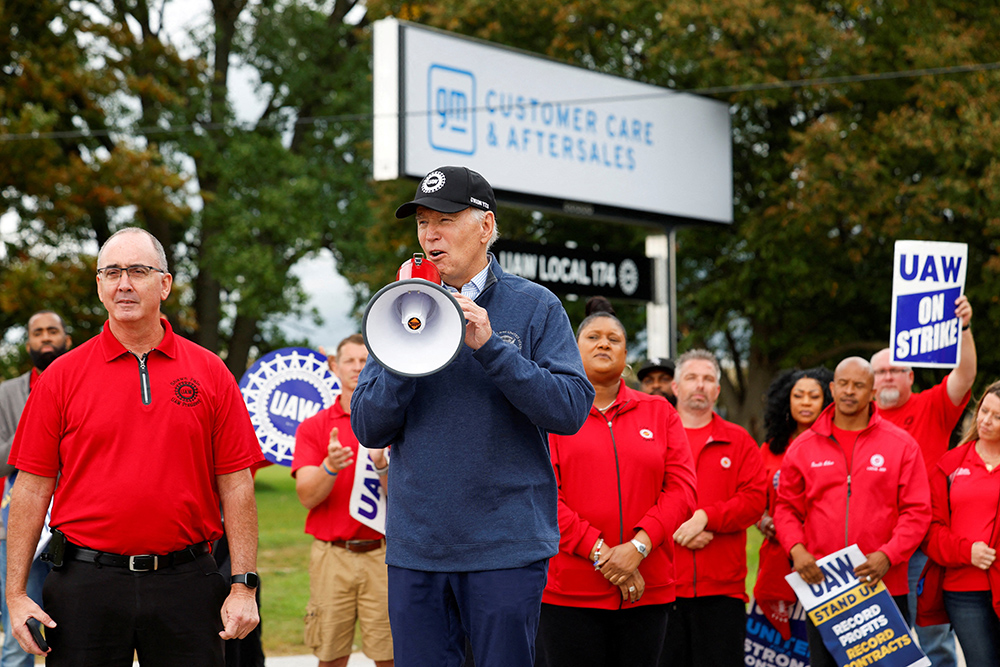
By Kate Scanlon
(OSV News) — President Joe Biden joined striking autoworkers in Michigan Sept. 26, becoming the first sitting president to join a union picket line, an unprecedented show of support to striking workers by a chief executive.
Members of the United Auto Workers union began a strike Sept. 15 against the nation’s three largest automakers — General Motors, Ford and Stellantis — asking for substantial pay raises, arguing that amid a quarter trillion dollars of North American profits reaped these past 10 years, workers should get a pay raise proportionate to the percentage increases awarded to company executives’ pay.
Biden, who is seeking reelection to the White House in 2024, has sought to demonstrate support for the union members. Former President Donald Trump, who also is seeking his party’s nomination to return to the White House, was scheduled to deliver a speech to current and former union members Sept. 27, the same evening his Republican rivals are scheduled to debate in California. But the venue where Trump will speak is a nonunion factory, some critics noted.
In brief comments, Biden, the nation’s second Catholic president, said the workers’ proposition was “real simple.”
“The fact of the matter is that you guys, the UAW — you saved the automobile industry back in 2008 and before,” Biden said, referring to the recession that took place that year and its impact on the automobile industry. “You made a lot of sacrifices. You gave up a lot. And the companies were in trouble. But now they’re doing incredibly well. And guess what? You should be doing incredibly well too.”
Clayton Sinyai, executive director of the Catholic Labor Network, an association of Catholic labor activists, told OSV News that “it was great to see the president taking the side of workers in a dispute with their employer. We’ve never seen that before.”
Pointing to the 1891 encyclical “Rerum Novarum” written by Pope Leo XIII, Sinyai said that document “praised labor unions as an appropriate response to the problem of the modern economy, where most people work for wages on terms largely dictated by their employers.”
“He was right,” Sinyai said of that pontiff. “Historically, labor unions have enabled workers to obtain a fair share of the profits of their enterprise — as the UAW strike is showing us.”
St. John Paul II wrote in his 1981 encyclical “Laborem Exercens” that strikes are “recognized by Catholic social teaching as legitimate in the proper conditions and within just limits. … Workers should be assured the right to strike, without being subjected to personal penal sanctions for taking part in a strike.”
Similarly, the U.S. Conference of Catholic Bishops wrote in a 1986 pastoral letter titled “Economic Justice for All” that unions may “legitimately resort to strikes where this is the only available means to the justice owed workers.”
